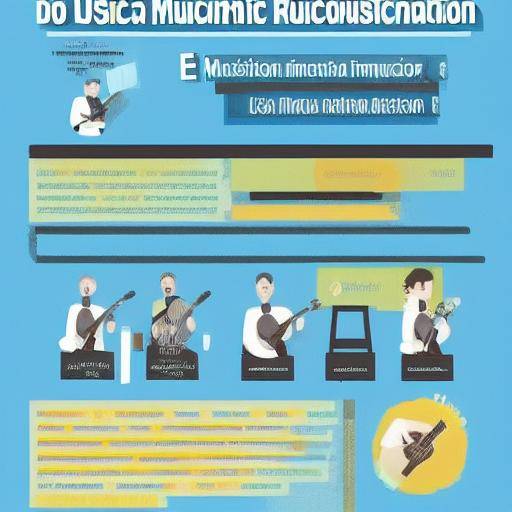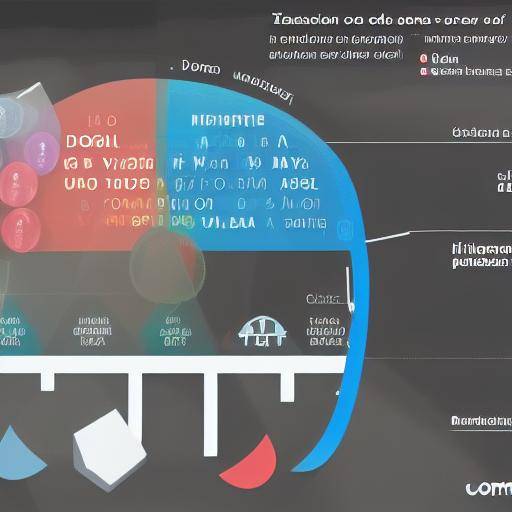
Music has been an integral part of human life since time immemorial. It accompanies us in moments of joy, sadness, celebration and reflection. But did you know that music can also be a powerful tool to improve concentration? In this article we will explore the connections between music, concentration and mental focus, as well as the influence of the sound environment in our cognitive performance.
Music and concentration: a powerful combination
The relationship between music and concentration has been the object of interest and study for decades. It has been shown that music can influence our mood, productivity and concentration capacity. When listening to music, the areas of the brain associated with concentration and attention are activated, which can lead to greater efficiency in cognitive tasks.
Benefits of music in concentration
- Stress reduction and anxiety: Music can act as a natural soothing, reducing stress and anxiety, which facilitates concentration on difficult tasks.
- Brain stimulation: Some types of music, such as classical music, have proven to stimulate brain activity, which could improve concentration and learning capacity.
- Improvement of the Agimo State: Music can positively influence the mood, fostering an enabling environment for concentration and productivity.
Choice of proper music
Not all music is equal in terms of effects on concentration. Instrumental music, in particular classical music, jazz or environmental music, is generally a popular option to improve concentration, as its soft melodies and the absence of letters can prevent distractions.
Environment and rational concentration
In addition to the music, the sound atmosphere in which we find ourselves can significantly influence our ability to concentrate. A quiet environment with soft and indistractive sounds can create ideal conditions for mental focus and concentration.
Impact of the rational environment on performance
- Ruin and distractions: Noisy and chaotic environments can hinder concentration and reduce productivity.
- Natural sounds: It has been shown that the sounds of nature, such as the singing of birds or the whisper of the wind, can improve concentration and reduce stress.
- Acoustic isolation: The creation of spaces with acoustic isolation can be beneficial in environments where a high level of concentration is required, such as offices or studio spaces.
Mental approach and strategies to improve concentration
The mental approach is the ability to direct attention to a specific task over a long period of time. Although music and sound environment can be powerful allies to improve concentration, there are other strategies that can further improve this capacity.
Mental approach techniques
- Meditation and attention: The practice of meditation and consciousness can train the mind to keep the focus in the present, which translates into greater concentration.
- Breathing techniques: Conscious breathing control can help calm the mind and improve concentration capacity.
- Scheduled rest: Making short and scheduled breaks during prolonged tasks can maintain concentration and productivity.
In conclusion, music strategies, solid environment and mental focus are valuable resources to improve concentration and improve cognitive performance. By understanding how to use these elements effectively, we can optimize our ability to concentrate and perform our tasks more efficiently.
Frequently asked questions
**What kind of music is best to improve concentration? **The instrumental music, in particular classical music, jazz or environmental music, is generally the most recommended option to improve concentration.
**What is the influence of the sound environment in concentration? The sound environment can have a significant impact on our ability to concentrate. Noisy and chaotic environments can hinder concentration, while soft and natural sounds, such as birds singing or whispering the wind, can improve it. Acoustic isolation can also be beneficial in environments where a high level of concentration is needed.
**How can I apply music and sound environment to improve my concentration at work? **You can create an environment with soft instrumental music or natural sounds while working. Also, be sure to have acoustic insulation or look for quiet spaces to minimize distractions.
**What are some effective techniques for improving the mental approach? ** Practical meditation, attention and control of breathing are some effective techniques to improve mental focus and concentration.
** Should I listen to music while studying or working? **The decision to listen to music while studying or working depends on your personal preferences and the nature of the task. For some people, music can improve concentration, while others prefer total silence.
**What impact does the sound environment have on labor performance?** A peaceful and distraction-free sound environment can improve job performance by facilitating concentration and minimizing stress.
In short, the combination of music strategies, sound environment and mental focus can have a significant impact on our ability to concentrate and perform our tasks efficiently. By understanding how to use these elements effectively, we can optimize our productivity and well-being. Take advantage of the power of music and the sound environment to improve your concentration and mental focus!

























